The History of Kenya's 20th October National Holiday: From Kenyatta Day to Mashujaa Day
The 20th of October holds profound significance in Kenya's history, marking a journey from colonial resistance to national celebration of heroism. This date has evolved from commemorating a single leader to honoring all of Kenya's heroes and heroines who have shaped the nation's destiny.
Kenya’s 20th October national holiday is a significant day in the country's calendar, commemorating the nation's heroes and celebrating the spirit of resilience, freedom and patriotism. This holiday, which started as Kenyatta Day, evolved into Mashujaa Day in 2010, reflecting a broader recognition of all those who contributed to Kenya's struggle for independence and nation-building. This article delves into the holiday's historical transformation and the important milestones that have shaped it.
A Brief History of Kenya's National Day
Mashujaa Day, a day dedicated to honoring Kenya's heroes, is a significant national holiday celebrated on October 20th each year. The day has a rich history, evolving from its inception as Kenyatta Day to its current form, Mashujaa Day.
The Inception of Kenyatta Day (1958)
The origin of Kenya’s 20th October holiday date back to 1958 during the colonial period, when it was declared as Kenyatta Day. The day was named in honor of Jomo Kenyatta, one of Kenya's most prominent independence activists, who was imprisoned by the British colonial government. Kenyatta, along with five other leaders, known as the "Kapenguria Six"—Paul Ngei, Fred Kubai, Bildad Kaggia, Achieng Oneko, and Kung'u Karumba—was detained on 20th October 1952 under accusations of leading the Mau Mau uprising. This day became a symbol of resistance and the fight for freedom.
For many years, Kenyatta Day was observed to honor the sacrifice made by these leaders, particularly Jomo Kenyatta, who later became Kenya's first Prime Minister in 1963 and its first President in 1964 following independence from British rule. The celebration aimed to pay tribute to those who fought for Kenya’s freedom and to remind citizens of the importance of unity in overcoming adversity.
Kenyatta Day: A Tribute to the Father of the Nation
Kenyatta Day was established in 1964 to commemorate the birthday of Jomo Kenyatta, the first President of Kenya. Kenyatta, a prominent figure in the country's independence struggle, was instrumental in leading Kenya to self-rule. The day served as a tribute to his leadership and contributions to the nation's development.
The Origins: Kenyatta Day (1964-2010)
October 20th was first designated as Kenyatta Day in 1964, a year after Kenya gained independence. The date commemorates a pivotal moment in Kenya's struggle for independence - October 20, 1952, when British colonial authorities arrested Mzee Jomo Kenyatta along with five other freedom fighters:
- Kung'u Karumba
- Bildad Kaggia
- Paul Ngei
- Fred Kubai
- Achieng' Oneko
These arrests, known as "Operation Jock Scott," marked the beginning of the State of Emergency in Kenya and intensified the struggle for independence. The colonial government detained these leaders in Kapenguria, where they faced trial in what became historically known as the "Kapenguria Six Trial."
The Transition Period (2010)
With the promulgation of the new Constitution on August 27, 2010, Kenya entered a new era of constitutional governance. This historic document brought significant changes to various aspects of Kenyan life, including the renaming of public holidays to reflect a more inclusive national identity. Kenyatta Day was renamed Mashujaa Day (Heroes' Day). The change aimed to extend the scope of the celebration to include not only the Kapenguria Six and Jomo Kenyatta but also other Kenyans who played vital roles in the fight for independence, as well as those who have made notable contributions to the nation since then.
Mashujaa Day broadened the focus to honor all the country’s heroes (Mashujaa), recognizing those who have contributed to Kenya's social, political, cultural, and economic development. This inclusivity reflected a growing appreciation for the diverse contributions of individuals and groups beyond the original independence movement.
The term "Mashujaa" is derived from the Swahili word "shujaa," which means "hero." Mashujaa Day is a time to recognize and celebrate the courage, sacrifice, and resilience of Kenyans who have fought for the country's freedom, defended its sovereignty, and made significant contributions to its development.
Mashujaa Day: A New Era (2010-Present)
The transition from Kenyatta Day to Mashujaa Day came with the implementation of the 2010 Constitution. "Mashujaa" is a Swahili word meaning "heroes" or "champions." This change was significant for several reasons:
- Inclusive Recognition: The holiday now celebrates all Kenyan heroes and heroines who have contributed to the nation's progress, not just political figures.
- Historical Scope: The celebration encompasses:
- Pre-colonial resistance leaders
- Colonial-era freedom fighters
- Post-independence champions of democracy
- Modern-day heroes in various fields
Key Facts about Mashujaa Day
- Date: October 20th
- Purpose: To honor Kenya's heroes who have contributed to the country's independence, freedom, and progress.
- History: Evolved from Kenyatta Day, established in 1964 to commemorate Jomo Kenyatta's birthday.
- Significance: A day to recognize and celebrate the courage, sacrifice, and resilience of Kenyans.
The Significance of Mashujaa Day Today
Mashujaa Day remains a central national holiday in Kenya, marked with celebrations across the country. The President usually presides over the main ceremony, which involves military parades, speeches by key leaders, cultural performances, and awards for distinguished service. Each year, the celebrations take place in different counties, symbolizing Kenya's unity in diversity and providing an opportunity to recognize local heroes who have positively impacted their communities.
The holiday serves as a moment of reflection on the country's history, achievements, and the ongoing struggle for socio-political and economic freedoms. It is also a time to acknowledge modern-day heroes, including freedom fighters, sports icons, health workers, educators, innovators, and community leaders who contribute to Kenya’s development and progress.
Key Milestones in the History of 20th October Holiday
- 1952 – The Arrest of the Kapenguria Six: The events leading to the formation of Kenyatta Day began with the arrest of Jomo Kenyatta and five other leaders on 20th October 1952, marking the beginning of heightened efforts for Kenya's independence.
- 1958 – Declaration of Kenyatta Day: The colonial government declared Kenyatta Day in 1958 to commemorate the struggles led by Kenyatta and the Kapenguria Six.
- 1963 – Independence Achieved: Kenya gained independence on 12th December 1963, with Jomo Kenyatta becoming the Prime Minister, and later, the first President in 1964. Kenyatta Day became an even more significant holiday post-independence.
- 2010 – Renaming to Mashujaa Day: The new Constitution introduced on 27th August 2010 transformed Kenyatta Day into Mashujaa Day, expanding the holiday to recognize all heroes who have contributed to the country's freedom, growth, and development.
Categories of Heroes Celebrated
The shift from Kenyatta Day to Mashujaa Day reflects Kenya's broader appreciation of contributions across various sectors. Today, the heroes celebrated are not just political figures but also those from other fields: Mashujaa Day recognizes various categories of heroes:
Freedom Fighters
- The Mau Mau freedom fighters
- Trade unionists who fought for workers' rights
- Political activists who championed independence.
Cultural Heroes
- Traditional leaders who preserved Kenyan cultures.
- Artists and musicians who promoted Kenyan identity.
- Sports personalities who brought glory to the nation.
Modern Heroes
- Environmental activists like Wangari Maathai
- Human rights defenders
- Innovation and technology pioneers
- Community leaders and social activists
Healthcare Workers
Educators and Innovators
Significance in Modern Kenya
Today, Mashujaa Day serves multiple purposes:
- National Unity: It promotes unity by celebrating heroes from all ethnic communities and regions of Kenya.
- Historical Education: The holiday provides an opportunity for younger generations to learn about Kenya's struggle for independence and post-independence achievements.
- Inspiration: It motivates Kenyans to strive for excellence in their respective fields, knowing their contributions to nation-building will be recognized.
The Role of Mashujaa Day in Nation Building
Mashujaa Day serves not only as a celebration of Kenya’s history but also as a reminder of the collective responsibility to shape the future. It reinforces the values of resilience, unity, and patriotism, which are essential for national development. By honoring past and present heroes, Kenya continues to inspire future generations to contribute positively to society.
Celebration and Observance
The day is marked by:
- National celebrations led by the President
- Local community events across the country
- Cultural performances and exhibitions
- Recognition of contemporary heroes
- Educational programs in schools and institutions
Conclusion
The evolution from Kenyatta Day to Mashujaa Day represents Kenya's growth as a nation - from focusing on individual leadership to celebrating collective achievement. It stands as a testament to the country's commitment to recognizing all those who have contributed to its development, whether through the struggle for independence, social justice, economic empowerment, or cultural preservation.
As Kenya continues to develop, Mashujaa Day serves as both a reminder of the past and an inspiration for the future, encouraging every Kenyan to strive to be a hero in their own right.
From its inception as Kenyatta Day in 1958 to its transformation into Mashujaa Day in 2010, the 20th October holiday embodies Kenya's journey toward freedom, unity, and recognition of its diverse heroes. It serves as a symbol of the country’s enduring spirit and a platform to celebrate contributions across all sectors. As Kenya continues to grow, Mashujaa Day will remain a crucial part of the national narrative, motivating citizens to work together in building a prosperous and united nation.
Mashujaa Day is a national occasion that unites Kenyans in celebrating their shared heritage and honoring those who have made a lasting impact on the country. It is a day to reflect on Kenya's journey to independence and to inspire future generations to continue the legacy of heroism and service.
Keep It teefilms247.blogspot.com for more insightful articles about Kenya's rich history and culture.
Written by I~tee O~tee
Published: October 19, 2024
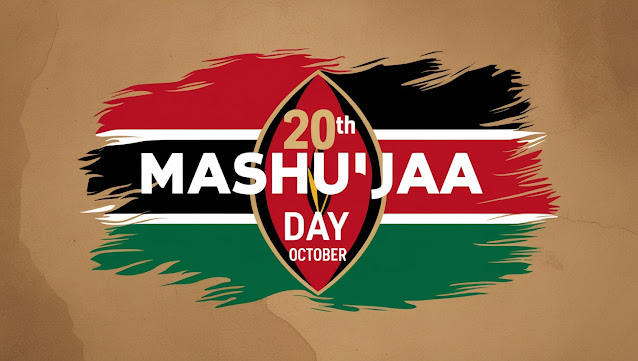

.jpg)







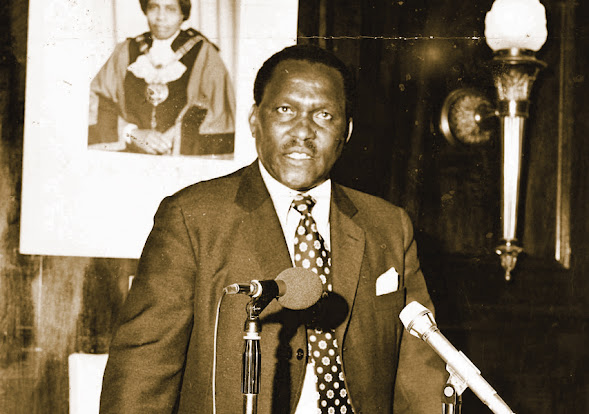
.jpeg)

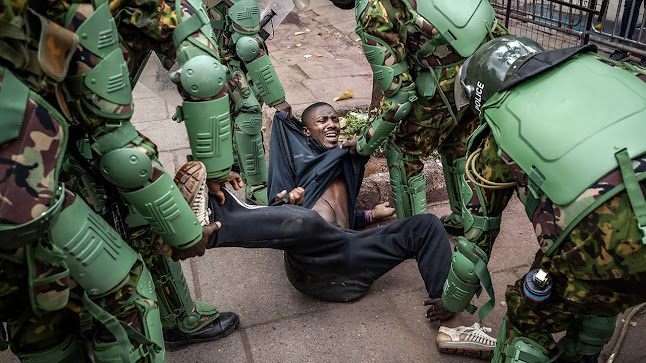


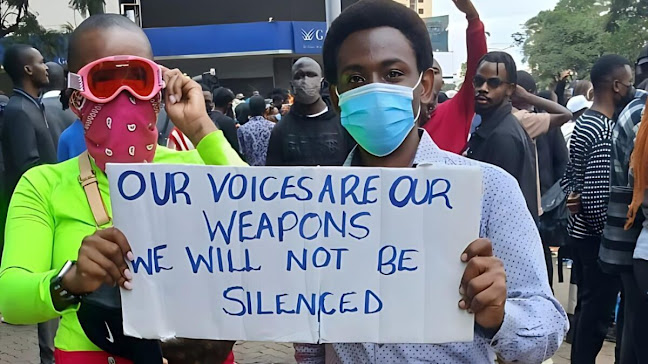













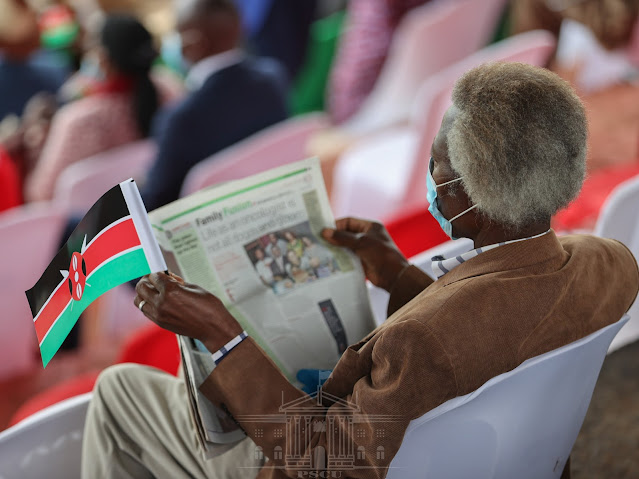


.jpeg)

.jpeg)




.jpg)
Comments
Post a Comment